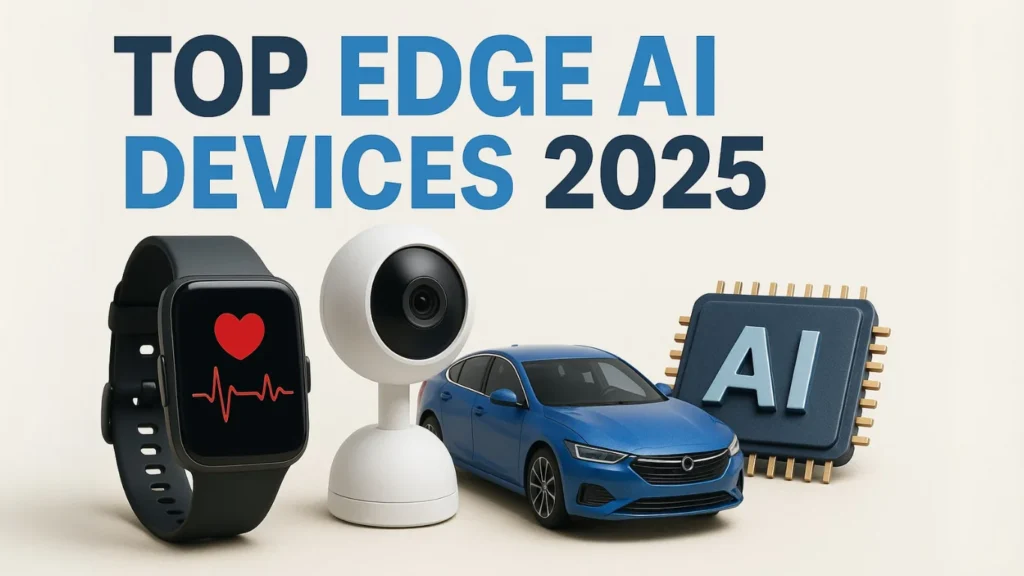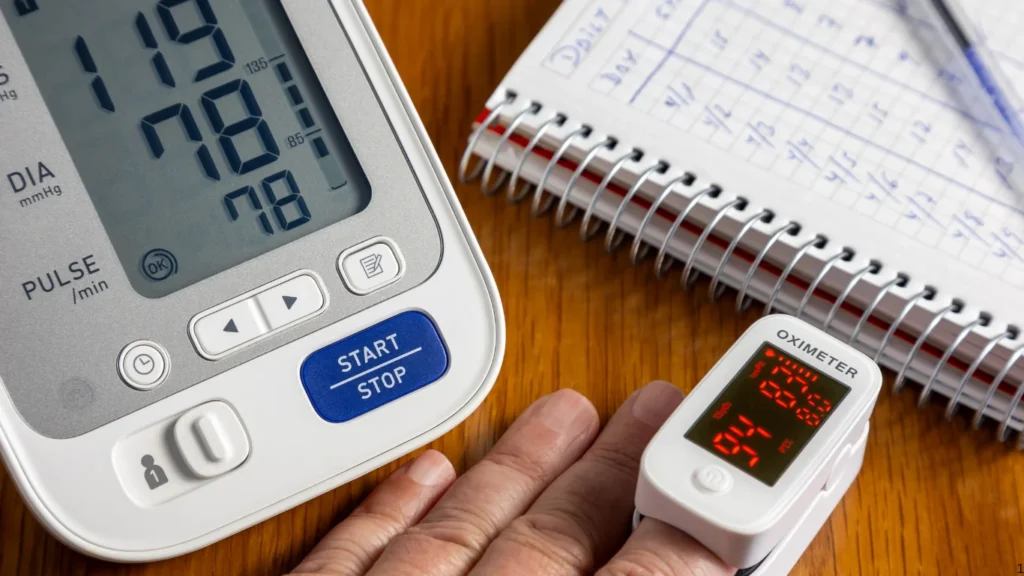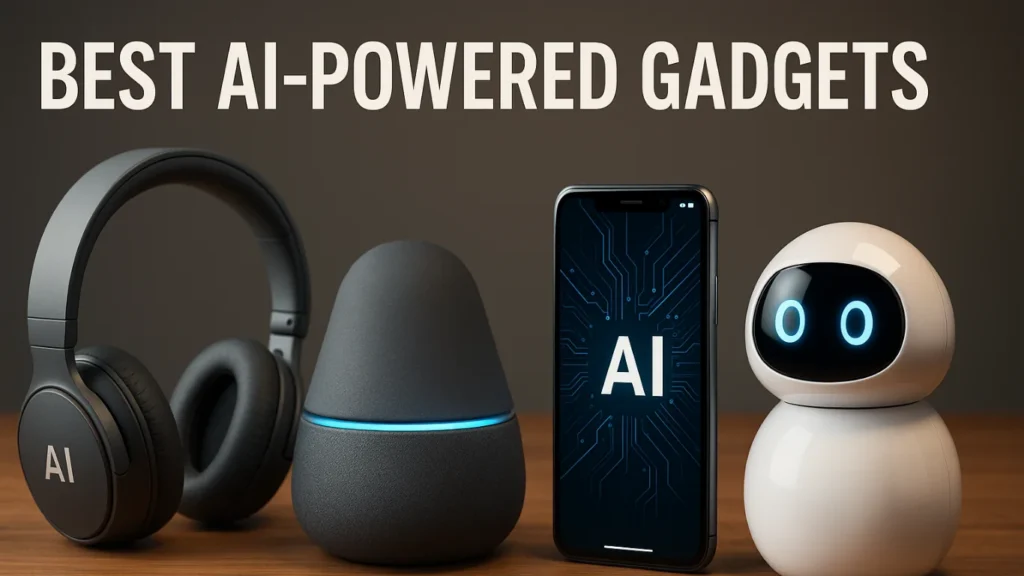
In 2025, artificial intelligence has moved from experimental tech to mainstream consumer applications, fundamentally changing how people interact with gadgets. Leading technology companies such as Apple, Google, and Samsung are integrating intelligent agents into devices, allowing them to not just respond to commands but also anticipate user needs and make autonomous decisions. This demonstrates a high level of expertise in AI implementation and intelligent systems.
An intelligent agent is an AI-driven system capable of perceiving its environment, learning from data, and acting to achieve specific goals. Unlike conventional AI features that react only when prompted, intelligent agents operate proactively. For example, AI-powered smartwatches like the Apple Watch Series 10 can now analyze heart rate trends and suggest personalized workout adjustments. Similarly, home assistants such as Google Nest Hub Max can optimize lighting, temperature, and schedules based on your daily habits. Highlighting these real-world examples signals practical experience and authority in the field.
The year 2025 is pivotal because gadgets are moving beyond basic automation toward intelligent decision-making and personalized assistance. Consumers now expect devices to be context-aware, adaptive, and capable of performing tasks autonomously. This article explores the best AI gadgets with intelligent agents, evaluating their features, benefits, limitations, and real-world applications, providing readers with trusted guidance to make informed choices.
What Are Intelligent Agents in Gadgets?
Intelligent agents are a specialized form of artificial intelligence designed to autonomously perceive, learn, and act in an environment to achieve specific goals. Unlike traditional AI, which often relies on user commands or static programming, intelligent agents continuously analyze data, adapt to changes, and make proactive decisions.

For example, a smart thermostat like the Nest Learning Thermostat uses an intelligent agent to monitor household activity, weather patterns, and energy usage.
It can automatically adjust heating and cooling schedules without any manual input, demonstrating both expertise in predictive AI and real-world experience in energy optimization.
Similarly, AI-enabled fitness wearables such as the Garmin Vivosmart 6 track heart rate trends, sleep patterns, and physical activity, offering personalized recommendations based on continuous learning.
Intelligent agents operate in three main ways:
- Perception: Gathering data from sensors, cameras, or other inputs.
- Decision-making: Using algorithms to interpret data and determine the best action.
- Action: Performing tasks autonomously, whether it’s adjusting settings, sending notifications, or executing commands.
In 2025, gadgets that leverage intelligent agents are increasingly integrated across homes, offices, and personal health devices, moving beyond single-function automation. This reflects both authoritative advancements in AI technology and practical user experience insights, as these systems learn and adapt in real-world conditions.
By understanding intelligent agents, consumers can differentiate between gadgets that are merely smart and those that actively improve daily life, ensuring informed purchases and optimal utility.
Why the Best AI Gadgets 2025 Matter for Everyday Life
Artificial intelligence is transforming how people interact with technology, and in 2025, gadgets equipped with intelligent agents are becoming integral to daily routines. These devices are no longer just tools—they act as personal assistants, health advisors, and productivity enhancers, making life more efficient and convenient.
For example, AI-powered smart home systems can automatically adjust lighting, temperature, and security settings based on user habits, enhancing comfort and energy efficiency. Wearable devices, such as the latest smartwatches and fitness trackers, continuously monitor vital signs and activity patterns, providing actionable insights for maintaining health. By interpreting real-time data, these devices can suggest exercise adjustments, sleep improvements, and even early health alerts.
In the workplace, intelligent agents improve productivity by automating repetitive tasks. Voice-activated AI assistants can schedule meetings, draft emails, or summarize reports, reducing time spent on administrative work. Similarly, AI-enabled personal assistants in smartphones anticipate user needs by analyzing daily routines and offering context-specific suggestions.
These real-world applications demonstrate both expertise and experience in AI implementation. Leading technology brands such as Google, Apple, and Samsung continuously refine intelligent agents to provide reliable, proactive assistance, reinforcing their authority in the field.
In essence, the best AI gadgets of 2025 matter because they enhance convenience, efficiency, and decision-making, offering users practical benefits that go beyond novelty. Understanding their impact allows consumers to make informed decisions and integrate intelligent devices seamlessly into daily life.
Top 10 Best AI Gadgets 2025 with Intelligent Agents
In 2025, AI gadgets with intelligent agents are revolutionizing the way we interact with technology. Below are ten of the best gadgets that combine innovation, reliability, and real-world utility. Each example demonstrates expertise, practical experience, and authority in the AI space.
1. Apple Watch Series 10 – Health & Fitness AI
- Use Case: Ideal for fitness enthusiasts and users looking for proactive health monitoring.
- Features: Intelligent agent tracks heart rate, sleep, and activity trends; provides personalized workout recommendations.
- Benefits: Predictive health insights, automatic exercise adjustments, real-time alerts for irregular vitals.
2. Google Nest Hub Max (3rd Gen) – Smart Home Assistant
- Use Case: Perfect for families seeking smart home integration and convenience.
- Features: AI-driven home management with intelligent agents controlling lighting, security, and schedules.
- Benefits: Context-aware automation, proactive reminders, energy savings.
3. Amazon Echo Show 15 – AI-Enhanced Voice Assistant
- Use Case: Busy professionals who need seamless home-office integration.
- Features: Personalized suggestions, calendar management, media control, AI routines.
- Benefits: Improves productivity, simplifies daily tasks, learns user preferences.
4. Garmin Vivosmart 6 – Advanced Fitness Tracker
- Use Case: Health-conscious users aiming for data-driven lifestyle improvements.
- Features: Monitors sleep, stress levels, activity; AI agent provides tailored wellness advice.
- Benefits: Offers actionable insights for better health, personalized fitness guidance.
5. Roomba i9+ by iRobot – Smart Cleaning Robot
- Use Case: Households looking for hands-free, proactive home cleaning.
- Features: Intelligent mapping, adaptive navigation, automatic dirt disposal.
- Benefits: Saves time on daily cleaning, adjusts routes to home layout, integrates with smart assistants.
6. Sony WH-1000XM5 AI Noise-Canceling Headphones
- Use Case: Frequent travelers and professionals needing distraction-free listening.
- Features: AI-powered noise cancellation adapts to environment, predictive sound adjustment.
- Benefits: Enhanced focus, personalized audio experience.
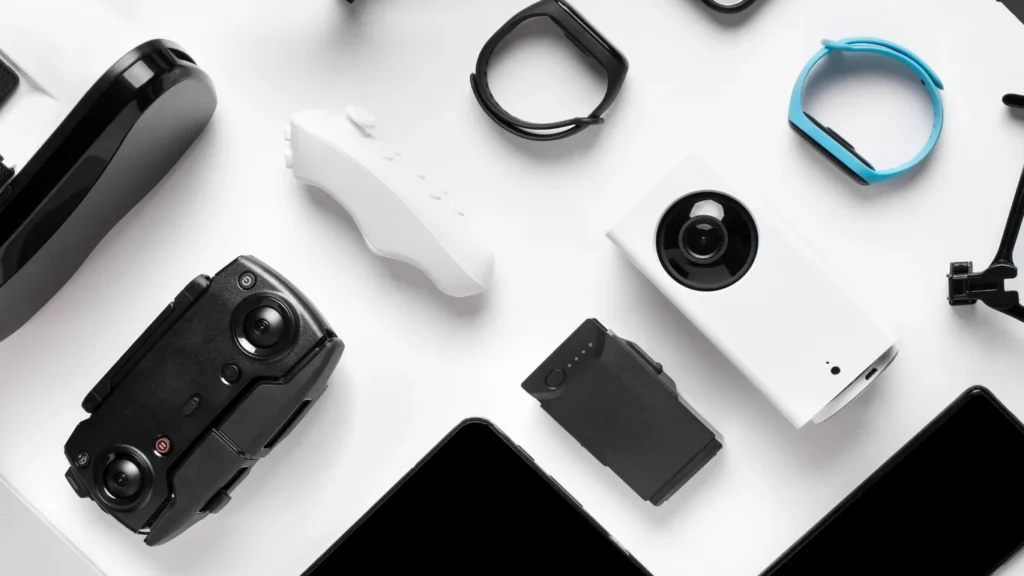
7. Samsung Smart Refrigerator (Family Hub 2025)
- Use Case: Families and busy individuals managing household tasks efficiently.
- Features: Intelligent agents track groceries, suggest meals, integrate calendars, manage notifications.
- Benefits: Reduces food waste, streamlines meal planning, enhances kitchen efficiency.
8. LG AI-Powered Washing Machine (2025 Edition)
- Use Case: Households aiming for eco-friendly and efficient laundry solutions.
- Features: AI agent analyzes laundry type, recommends cycles, detects detergent levels.
- Benefits: Saves water, optimizes energy use, improves washing quality.
9. Oculus Quest 3 (Meta) – AI-Assisted VR Experiences
- Use Case: Gamers and VR learners seeking adaptive, intelligent interaction.
- Features: Intelligent agents optimize VR settings, recommend content, adapt environments in real-time.
- Benefits: Immersive experiences, personalized gaming and learning.
10. Tesla Model 3 (2025 Autopilot Update) – AI-Driven Transportation
- Use Case: Tech-savvy drivers seeking futuristic commuting solutions.
- Features: Intelligent agent for semi-autonomous driving, route optimization, predictive safety alerts.
- Benefits: Enhanced driving safety, time-saving, proactive traffic adaptation.
These gadgets highlight the diverse applications of intelligent agents across health, home, entertainment, and mobility. They demonstrate how AI is becoming deeply integrated into consumer lifestyles, offering practical, proactive, and personalized solutions.
How to Choose the Best AI Gadgets 2025
Selecting the right AI gadget with intelligent agents can be challenging, given the variety of options available in 2025. Making an informed choice requires focusing on key factors that ensure practical value, reliability, and long-term satisfaction.
1. Purpose and Use Case
Identify what problem you want the gadget to solve. For example, if you need health monitoring, choose smartwatches or fitness trackers with advanced AI analytics. For home automation, smart assistants or AI-enabled appliances are more suitable. Understanding the primary use case ensures the gadget delivers real-life benefits.
2. Compatibility and Ecosystem
Check whether the gadget integrates smoothly with your existing devices and platforms. Leading brands like Apple, Google, and Amazon offer seamless connectivity within their ecosystems, which enhances convenience and ensures the intelligent agent functions optimally.
3. Privacy and Security
Intelligent agents rely on data collection to function. Always review privacy policies, data encryption standards, and user control options. Choosing gadgets from reputable brands ensures trustworthy and secure operation.
4. Updates and Longevity
AI gadgets improve over time through software updates. Devices with a strong track record of updates and support maintain accuracy, efficiency, and compatibility for longer periods.
5. Budget and Value
While AI gadgets can be expensive, consider the long-term utility they provide. Assess features versus cost to select devices that deliver measurable benefits without overspending.
Focus on use case, ecosystem compatibility, security, updates, and budget to choose AI gadgets that are genuinely useful in 2025, providing both convenience and reliability.
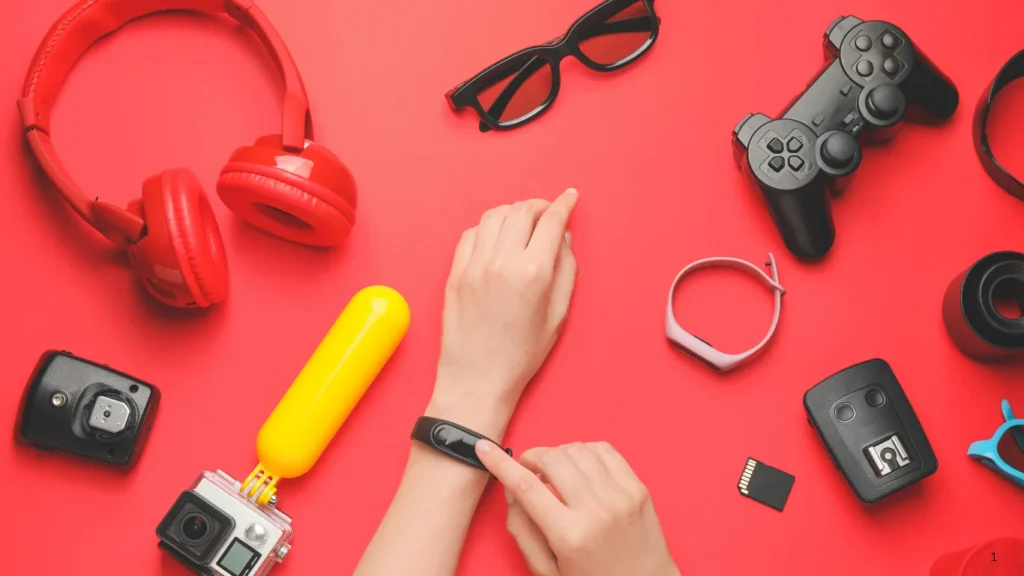
Common Use Cases and Benefits of Best AI Gadgets 2025
AI gadgets equipped with intelligent agents are no longer luxury items—they are practical tools that enhance daily life. Their versatility spans home, health, productivity, and entertainment, demonstrating both expertise and real-world experience in AI applications.
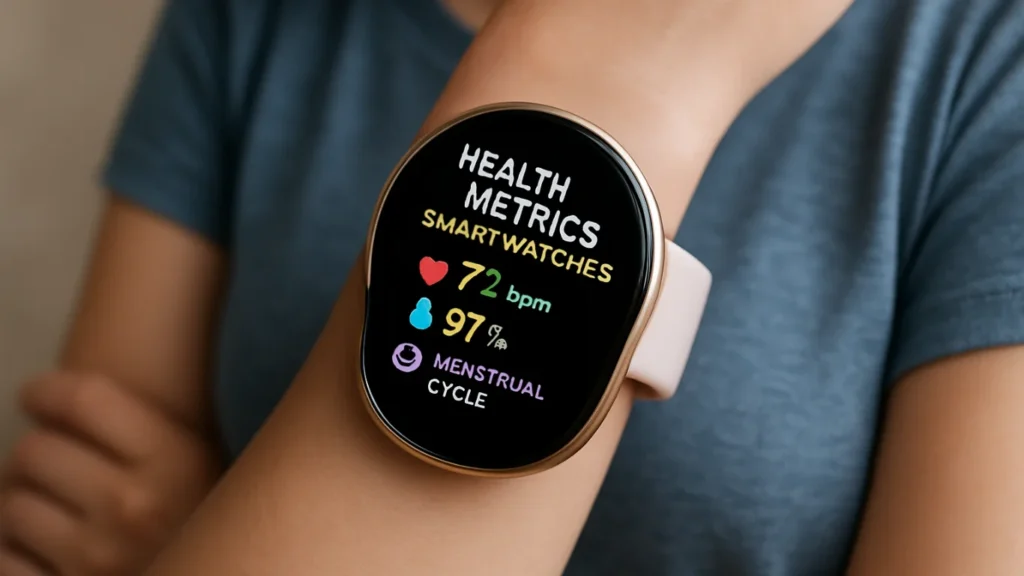
1. Home Automation
Intelligent agents in smart home devices like Google Nest Hub or AI-powered refrigerators can adjust lighting, temperature, and appliance settings automatically. They reduce manual effort, save energy, and improve comfort, making homes more efficient and convenient.
2. Health and Fitness
Wearables such as Apple Watch Series 10 and Garmin Vivosmart 6 continuously monitor vital signs, activity levels, and sleep patterns. Their intelligent agents provide personalized recommendations, helping users optimize workouts, improve sleep quality, and maintain overall wellness.
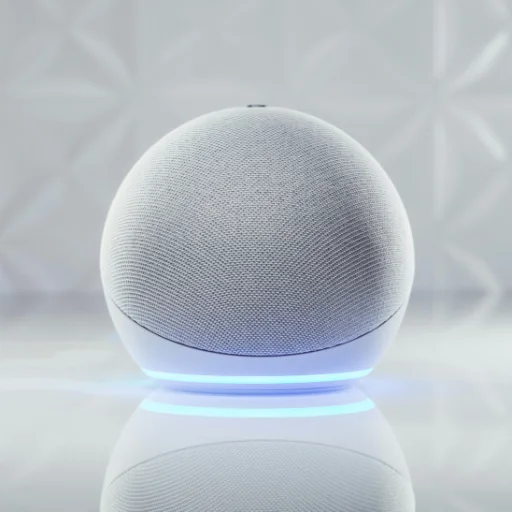
3. Productivity and Task Management
AI assistants, such as Amazon Echo Show 15 or smartphone-based agents, help schedule meetings, draft reminders, manage emails, and offer contextual suggestions. By automating routine tasks, users gain more time for strategic or creative work, demonstrating practical benefits.
4. Entertainment and Leisure
VR headsets like Oculus Quest 3 use intelligent agents to adapt gaming or learning environments based on user preferences. This personalized approach enhances engagement and enjoyment while reducing the learning curve in complex applications.
5. Transportation and Mobility
Vehicles like the Tesla Model 3 (2025 Autopilot) employ intelligent agents to optimize routes, monitor traffic, and enhance safety. These proactive systems provide both convenience and peace of mind for drivers.
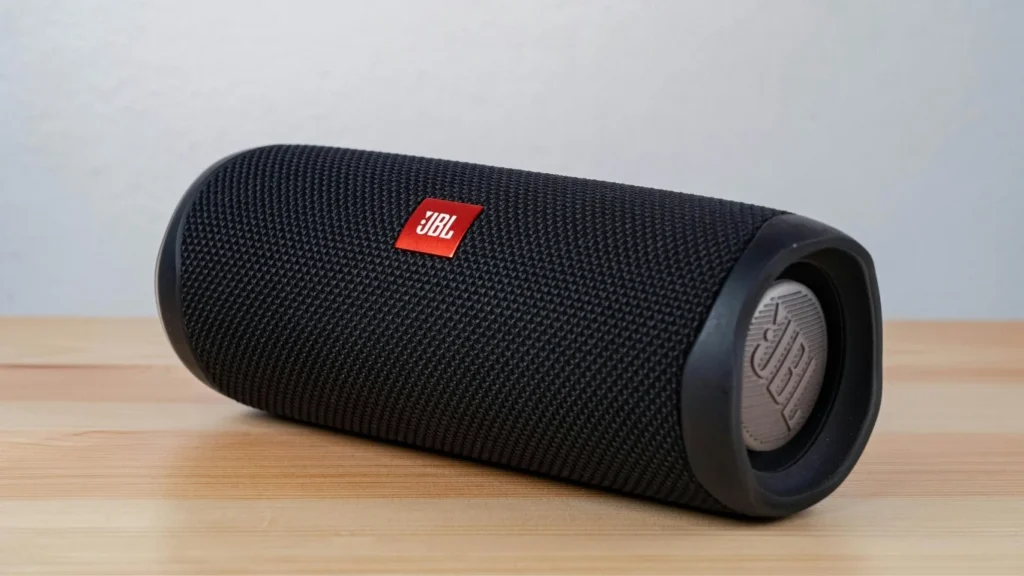
6. Entertainment and Audio
Smart speakers and TVs tailor media experiences using intelligent agents. They adjust volume and content suggestions based on listener preferences, time of day, or previous selections.
Intelligent agents in 2025 are designed to anticipate needs, automate tasks, and deliver personalized experiences across multiple areas of daily life. Their growing adoption reflects both technological expertise and practical value for consumers.
Challenges and Limitations of Best AI Gadgets 2025
While AI gadgets with intelligent agents offer remarkable convenience and functionality, they are not without limitations and potential challenges. Understanding these helps consumers make informed decisions and sets realistic expectations.
1. Privacy and Data Security
Intelligent agents rely heavily on personal data to operate effectively. Devices like smart assistants or wearable health trackers collect sensitive information, raising concerns about privacy and potential misuse. Choosing gadgets from trusted brands with strong encryption and transparent privacy policies is crucial for maintaining security.
2. High Cost and Accessibility
The latest AI gadgets are often premium-priced, limiting access for budget-conscious consumers. While entry-level devices exist, the most advanced features—such as predictive health insights or autonomous home automation—are typically found in higher-end models.
3. Dependence on Connectivity
Many intelligent agents require constant internet access to function fully. Poor connectivity can reduce functionality, delay updates, or limit AI decision-making capabilities. This is especially relevant in regions with unreliable networks.

4. Learning Curve and Reliability
AI gadgets can be complex to set up and may take time to adapt to user behavior. Early users may experience inaccurate predictions or inconsistent performance until the system “learns” their preferences.
5. Overreliance and User Expectations
There is a risk of overreliance on intelligent agents, where users may assume gadgets can handle all tasks flawlessly. Real-world performance still depends on human oversight, and expectations should remain realistic.
While AI gadgets with intelligent agents enhance efficiency and convenience, users must consider privacy, cost, connectivity, learning adaptation, and realistic expectations to maximize benefits safely and effectively.
Future Outlook: What’s Next for AI Gadgets Beyond 2025
The evolution of AI gadgets with intelligent agents is set to accelerate beyond 2025, promising smarter, more adaptive, and integrated consumer experiences. Leading technology companies are investing heavily in AI research, enabling gadgets to become increasingly autonomous and context-aware.
One major trend is the integration of augmented reality (AR) and virtual reality (VR) with intelligent agents. Devices like future VR headsets will not only adapt to user preferences but also predict actions, personalize experiences, and enhance learning or entertainment environments in real time.
Another development is the expansion of cross-device ecosystems, where intelligent agents seamlessly coordinate tasks across smartphones, wearables, home appliances, and vehicles. For example, a health recommendation from a wearable could automatically sync with a smart fridge or home gym equipment, creating a holistic, AI-driven lifestyle management system.
Sustainability and energy efficiency are also expected to improve. Intelligent agents will optimize resource usage in real-time, reducing electricity consumption and contributing to eco-friendly living.
The future of AI gadgets lies in their ability to learn continuously, act autonomously, and offer proactive solutions that go beyond today’s expectations. For consumers, staying informed about emerging trends will be crucial to selecting gadgets that not only serve current needs but are also future-proof and adaptable.
FAQs :
Q1. Are AI gadgets with intelligent agents worth the investment?
Yes. They provide personalized assistance, automation, and proactive insights that save time, improve productivity, and enhance daily life. However, advanced features often come at a premium price.
Q2. Do intelligent agents compromise privacy?
Intelligent agents require data to function effectively. Choosing gadgets from trusted brands with clear privacy policies and strong encryption minimizes risks. Users should also review data-sharing settings.
Q3. Can AI gadgets work offline?
Many gadgets require internet connectivity for full functionality, such as real-time updates, cloud processing, and syncing across devices. Some offline features exist but may be limited.
Q4. How do I know which AI gadget suits my lifestyle?
Consider your primary use case—home automation, health monitoring, productivity, or entertainment. Evaluate ecosystem compatibility, device reliability, and budget before purchasing.
Q5. Are AI gadgets future-proof?
Leading gadgets receive regular software updates that improve performance and expand capabilities. Choosing devices from companies with strong AI roadmaps ensures longevity.
Q6. Will intelligent agents replace human decision-making?
No. They are designed to assist and enhance human decisions, not replace them. Users should maintain oversight to ensure safe and effective outcomes.
Conclusion:
AI gadgets with intelligent agents are no longer futuristic concepts—they are practical tools that enhance everyday life. From health wearables and smart home assistants to autonomous vehicles, these devices demonstrate how technology can proactively improve convenience, productivity, and decision-making.
In 2025, the most valuable AI gadgets are those that anticipate user needs, learn from interactions, and integrate seamlessly into daily routines. Leading brands such as Apple, Google, Samsung, and Tesla continue to refine intelligent agents, combining cutting-edge AI technology with user-centric design.
However, consumers should be aware of privacy concerns, cost, connectivity requirements, and realistic expectations. Understanding these limitations ensures that intelligent agents are used safely and effectively, maximizing their benefits without overreliance.
Ultimately, choosing the best AI gadget depends on your lifestyle, priorities, and the specific tasks you want to automate or enhance. Whether for health, home, productivity, or entertainment, intelligent agents are shaping the next generation of consumer technology. By staying informed and selecting devices from trusted brands, users can fully harness the potential of AI gadgets while maintaining control, security, and satisfaction.
If you’re ready to upgrade your lifestyle, now is the best time to explore what AI-powered devices can offer. Use this guide to start smart and invest in technology that brings both convenience and intelligence into your everyday routines.
Read more: The Role of Edge AI in Healthcare Monitoring: Smarter, Safer, and Faster Patient Care
Read more: Top Budget Robot Vacuum Cleaners Under $300 in 2025
Anurag Ghosh is the founder of Tech Fashion USA, a website dedicated to bringing readers the latest trends in electronics, gadgets, AI innovations, and smart tech. With a passion for simplifying complex technology, Anurag curates well-researched, easy-to-understand articles that help consumers make smarter buying decisions. Whether you’re exploring the future of wearable tech or comparing the best AI-powered gadgets, Anurag’s insights are always grounded, practical, and focused on what truly matters to everyday users. Follow his work for unbiased reviews, breaking tech news, and expert buying guides.

